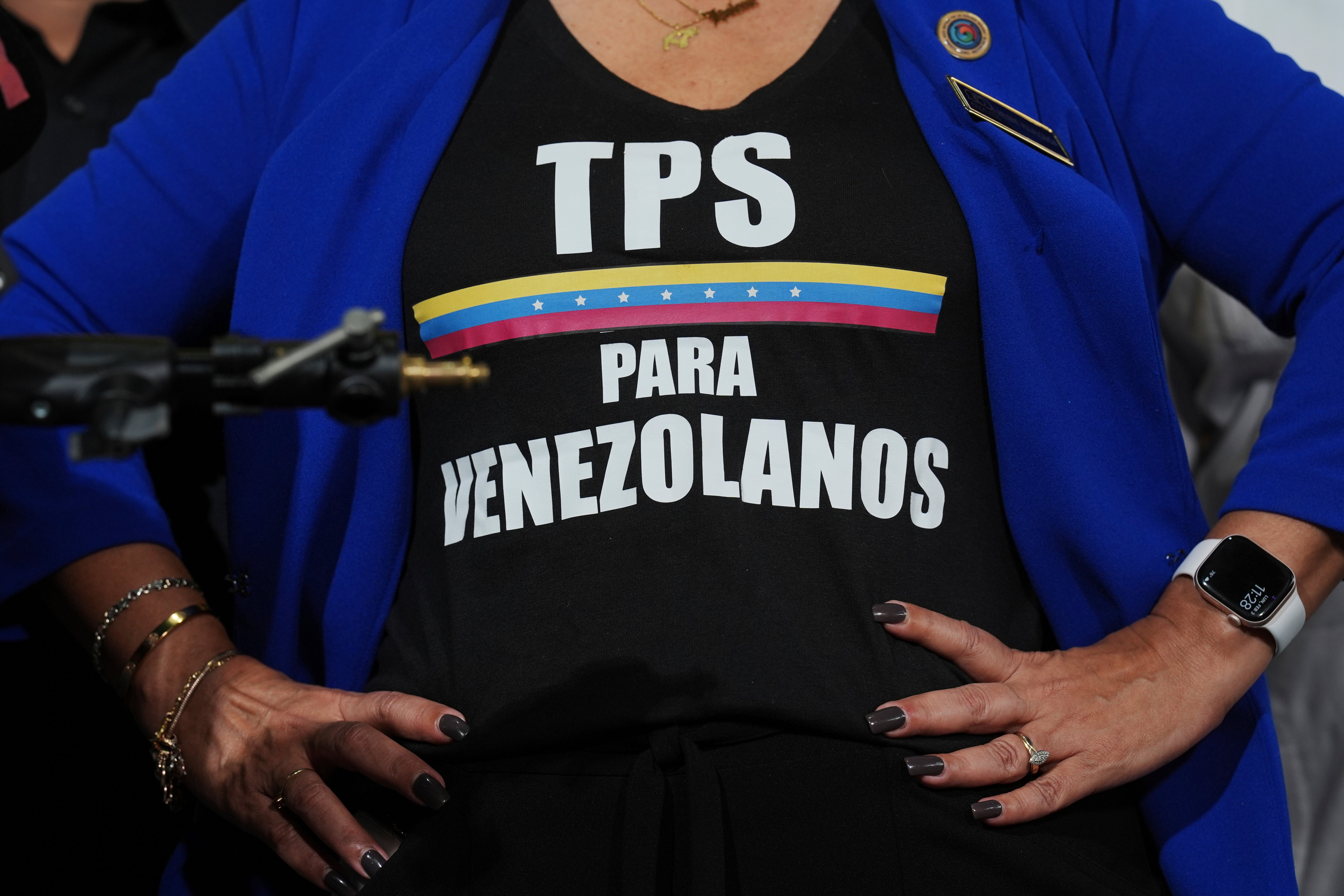The Supreme Court is allowing Donald Trump’s administration to begin stripping away humanitarian protections for thousands of Venezuelans in the United States.
An unsigned order from the nation’s highest court on Monday allows the administration to cancel temporary protected status for roughly 350,000 Venezuelans who fled President Nicolas Maduro’s regime.
The end of temporary protected status for thousands of Venezuelans cuts off their permissions to legally live and work in the country and cancels protections against their removal from the United States. They could now face deportations as Trump continues to push his anti-immigration agenda.
The Trump administration said a Joe Biden-era extension of the program was not in the “national interest” and rescinded those protections, a move that a federal judge said “smacks of racism” and threatened “irreparable harm” on hundreds of families. California District Judge Edward Chen paused the government’s directive, and a decision was upheld by an appeals court.
Monday’s order from the Supreme Court freezes that ruling, for now. The order notes that Liberal Justice Ketanji Brown Jackson objected to the decision.
February’s directive from Homeland Security Secretary Kristi Noem threatens to “inflict irreparable harm on hundreds of thousands of persons whose lives, families, and livelihoods will be severely disrupted, cost the United States billions in economic activity and injure public health and safety in communities throughout the United States,” according to Chen’s decision on March 31.
Arguments from the Trump administration defending the move, including claims that temporary protected status holders are members of the gang Tren de Aragua, are “entirely lacking in evidentiary support,” Chen wrote.
Instead, the move to cancel those protections appears “predicated on negative stereotypes casting class-wide aspersions on their character,” including “insinuating they were released from Venezuelan prisons and mental health facilities and imposed huge financial burdens on local communities,” according to the judge.
“Generalization of criminality to the Venezuelan [temporary protected status] population as a whole is baseless and smacks of racism predicated on generalized false stereotypes,” Chen wrote. “Moreover, Venezuelan [temporary protected status] holders are critical contributors to both the national and local economies: they work, spend money, and pay taxes.”

In filings to the Supreme Court, the Trump administration argued that continuing temporary protected status is a national security issue that is “straining police stations, city shelters and aid services in local communities that had reached a breaking point.”
Immigrants’ advocacy groups argued the government explicitly relied on “false, negative” stereotypes — including the president’s claims that foreign prisons were emptying out jails to send criminals to the United States — to justify the end of the temporary protected status.
Noem’s statements “conflated Venezuelan [temporary protected status] holders with ‘dirt bags,’ gang members, and dangerous criminals,” they wrote to the Supreme Court.
Congress created the temporary protected status program in 1990 to provide temporary immigration protections for people fleeing war, natural disasters and “extraordinary and temporary” conditions in their home countries. Beneficiaries are allowed to apply for renewable work permits and protections against deportation.
Biden’s Homeland Security Secretary Alejandro Mayorkas approved Venezuela for the program and extended the designation through October 2023.
The Trump administration is separately demanding the Supreme Court intervene to allow immigration officials to cancel humanitarian protections for thousands of immigrants from Cuba, Haiti and Nicaragua.
Last month, District Judge Indira Talwani in Massachusetts temporarily blocked Noem’s order that would have ended legal status for more than 530,000 people admitted to the program.
The judge’s order maintains temporary legal status for roughly 110,300 Cubans, 210,000 Haitians, 93,100 Nicaraguans and another 117,300 Venezuelans.
Ending those protections would force targeted immigrants to “choose between two injurious options: continue following the law and leave the country on their own, or await removal proceedings” that put them “at risk of arrest and detention” and effectively kill any chances of “receiving other forms of immigration relief in the future — potentially permanently,” Judge Talwani wrote.
The cases before the Supreme Court are among more than a dozen based on emergency requests for the court’s intervention coming from the Trump administration, including several stemming from his sweeping anti-immigration agenda.
Last week, justices heard oral arguments in a case that tests his executive order that redefines birthright citizenship and could determine just how far federal judges can go to issue orders that freeze parts of his agenda nationally.
CBS News staff is ‘reeling’ after CEO Wendy McMahon’s shock resignation
Ukraine live: Trump says ceasefire talks will begin after call with Putin
There's an American pope, and he's just like us. At least, we really, really want him to be
Badenoch accused of wearing transphobia as ‘badge of honour’ by Labour MP
Illinois mulls ending a health program for some immigrants living in the US illegally
Trump says Putin call went ‘very well’ with peace talks to start ‘immediately’







